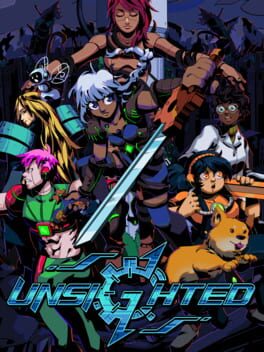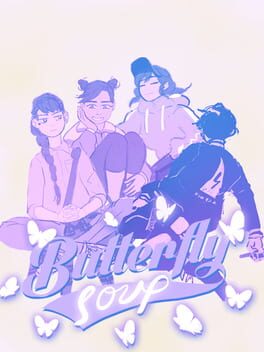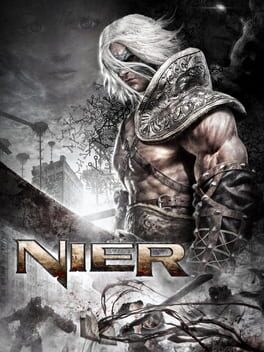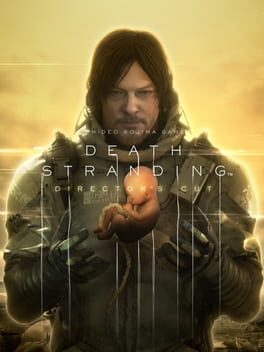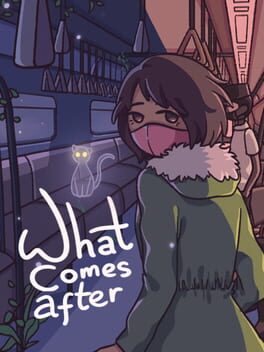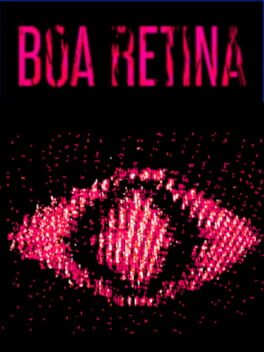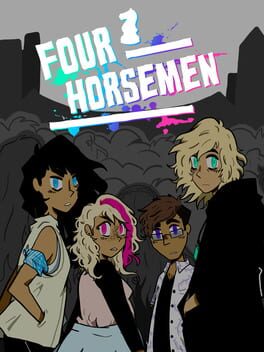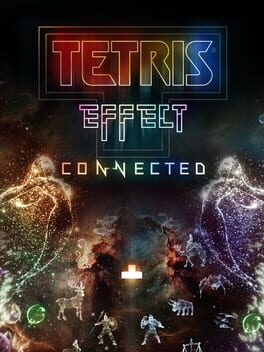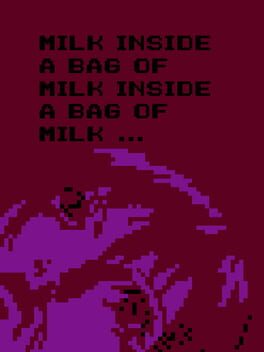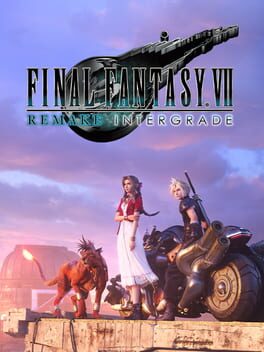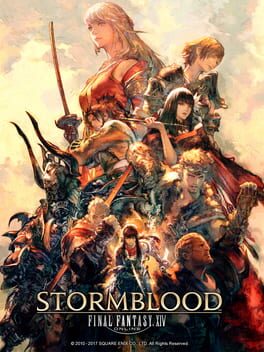joeysobat
2021
IIIIIII don't know, it seems indie games also fall for the traps of the AAA design of having multiple mechanics and systems and crafting and thingies and majiggies and in the end you don't focus on anything and feels to me like a mesh of many stuff.
Update after finishing the true ending: really wish there was some more emphasis into the "lesbian androids falling in love in a world at the bring of collapse" and less metroidvania. Maybe less metroidvania in every game
Update after finishing the true ending: really wish there was some more emphasis into the "lesbian androids falling in love in a world at the bring of collapse" and less metroidvania. Maybe less metroidvania in every game
2022
The chapter where they talk about stuff.
More insight into their families, expectations for their future and how their diverse and messy backgrounds affected their worldview. Always interesting to see this complicated relations between Asian-Americans, their immigrant parents and the country of origin of their distant families, on top of explorations of gender that they still don't know much about being the year that it is ("Yes We Can"); even if sometimes it falls into the trap of "PSA time: let's teach some stuff" when talking about deeper issues and feelings they bottle up, maybe because there's this idea that, for the sequel, it necessarily has to be more serious and explanatory. "But I thought racism was over".
But what the hell, I can't help it. I love these dorks. When I finished it I stared at the menu screen for several minutes, listening to the song and thinking about them. They'll get through it, it'll be okay.
More insight into their families, expectations for their future and how their diverse and messy backgrounds affected their worldview. Always interesting to see this complicated relations between Asian-Americans, their immigrant parents and the country of origin of their distant families, on top of explorations of gender that they still don't know much about being the year that it is ("Yes We Can"); even if sometimes it falls into the trap of "PSA time: let's teach some stuff" when talking about deeper issues and feelings they bottle up, maybe because there's this idea that, for the sequel, it necessarily has to be more serious and explanatory. "But I thought racism was over".
But what the hell, I can't help it. I love these dorks. When I finished it I stared at the menu screen for several minutes, listening to the song and thinking about them. They'll get through it, it'll be okay.
2017
2010
I love how Popola screams "it's too late to stop now" in her final battle, after all the violence and pain that everyone has created with their self-righteousness, forming a never-ending cycle of revenge. And how, in the D ending, Kaine can finally breathe next to Yonah, their time to live after being caught in all of this mess... Even if many of the game's moments didn't hit me as emotionally as it was supposed to...
A game I prefer to think about rather than play. Maybe because the message was already honed down from the first route, so repeating almost the same bits three times for the same events, almost no shifted perspective and the changing ending being (obviously) at the very end... It's a bit too much.
A game I prefer to think about rather than play. Maybe because the message was already honed down from the first route, so repeating almost the same bits three times for the same events, almost no shifted perspective and the changing ending being (obviously) at the very end... It's a bit too much.
Few people in this industry (or any industry, mind you), are so commited to constructing so complicated narrative paths and rythms, in order to tell the most naive and sincere emotions about human connection.
Won't ever understand those who insist on labelling Kojima as a frustrated filmmaker who turned to videogames and doesn't care about the gameplay. He has proven himself time and time again on both fronts, and Death Stranding's gameplay is inseparable to his aspirations with the game as a whole. Incisive, complex and reaching for new grounds.
The final credits come to an end, with the names of the other porters that have aided you on your journey. There's so much stuff you've built together without realizing.
Won't ever understand those who insist on labelling Kojima as a frustrated filmmaker who turned to videogames and doesn't care about the gameplay. He has proven himself time and time again on both fronts, and Death Stranding's gameplay is inseparable to his aspirations with the game as a whole. Incisive, complex and reaching for new grounds.
The final credits come to an end, with the names of the other porters that have aided you on your journey. There's so much stuff you've built together without realizing.
2020
2017
2017
Expanding every corner of Midgard. Maybe they expanded too much?
Making a whole game out of the first section of the original gives room to many possibilities. It allows for building places, for focusing on the people, for caring for the little stories and for putting emphasis on life itself: you are not the center of the story in an abstract environment anymore, you are AT the center of everything, making changes to the environment and to the story simultaneously. Both are one in the same.
The moment it strays from that, it shows how convoluted the whole thing can be. Entire chapters dedicated to giant mechanical bodies of architecture, whose main purpose in the original was to be little transitional levels with a few puzzles and encounters. Expanding them only serves to prove how innecessary was to expand them in the first place.
The soundtrack is remade by master craftspeople, there are musical numbers full of dance, light and music, the details are in the thousands, an insane amount of particles are present in every fight. Excess is everywhere. Probably the thing that may scare people the most, but it's one of the things that I enjoy the most of Nomura and his team. If you're gonna remake something this big, go with everything and don't look back.
But, what are they remaking? Will this be the same story? Has the story been told already, and we're seeing the future? The things that are yet to be? Knowing Nomura, I knew he wasn't gonna do a straight forward game, the context won't allow it. This first part in the trilogy is already messing with time and space, converging moments from AN end from A story, forging destiny as we speak. I have no idea what kind of destiny he wants, but i'm definitely eager to find out.
What a strange piece of media
Making a whole game out of the first section of the original gives room to many possibilities. It allows for building places, for focusing on the people, for caring for the little stories and for putting emphasis on life itself: you are not the center of the story in an abstract environment anymore, you are AT the center of everything, making changes to the environment and to the story simultaneously. Both are one in the same.
The moment it strays from that, it shows how convoluted the whole thing can be. Entire chapters dedicated to giant mechanical bodies of architecture, whose main purpose in the original was to be little transitional levels with a few puzzles and encounters. Expanding them only serves to prove how innecessary was to expand them in the first place.
The soundtrack is remade by master craftspeople, there are musical numbers full of dance, light and music, the details are in the thousands, an insane amount of particles are present in every fight. Excess is everywhere. Probably the thing that may scare people the most, but it's one of the things that I enjoy the most of Nomura and his team. If you're gonna remake something this big, go with everything and don't look back.
But, what are they remaking? Will this be the same story? Has the story been told already, and we're seeing the future? The things that are yet to be? Knowing Nomura, I knew he wasn't gonna do a straight forward game, the context won't allow it. This first part in the trilogy is already messing with time and space, converging moments from AN end from A story, forging destiny as we speak. I have no idea what kind of destiny he wants, but i'm definitely eager to find out.
What a strange piece of media
Makes sense that most of the communist-chanting options are played almost as jokes, because no one believes those grand statements anymore. More than that, they can't believe. They almost lost their meaning. This town is more complicated than all of that.
The sense of longing and the pain that comes from nostalgia are not enough: the world, the people, society, they have layers and layers. Reality is broken, and the past holds too many traumas for everyone. But you can still peel most of those layers, and get to the bottom of the heart. It doesn't feel like a task or a chore in any moment, it's like the answers are always driving you forward in such a small and concrete environment. You HAVE to keep going!! Be the detective, untangle every mess in your life and roll those dice!!!
The sense of longing and the pain that comes from nostalgia are not enough: the world, the people, society, they have layers and layers. Reality is broken, and the past holds too many traumas for everyone. But you can still peel most of those layers, and get to the bottom of the heart. It doesn't feel like a task or a chore in any moment, it's like the answers are always driving you forward in such a small and concrete environment. You HAVE to keep going!! Be the detective, untangle every mess in your life and roll those dice!!!
2009
Playing this the very last, it's inevitable to see how it has been picked apart by every Souls after this. Dark Souls 1 took the important stuff, Dark Souls 3 the cosmetics.
Breaking up the game into levels like this may not feel as "organic" to lot of people who prefered a long, unique world (maybe the same people who's favourite thing about movies is when a long one-take happens, for the sake of it). I think they can be equally gimmicky if taken out the context. DS1's world's interconnection served to demonstrate how much the fabric of reality had been torn apart after generations of nothing or no one holding it together. In Demon's Souls, the world is at this very moment being threaten by the destruction of reality in the hands of the invisible fog, and so what little remains of the world can be preserved in levels, the only way to go from one place to another without being trapped by the fog. Even then, the fog can still affect this places (hence having to "traverse the fog", a classical element of the franchise that took meaning in here).
This breaking up into levels gives it much more freedom, as you can do them in the order you prefer. Also, the levels are much more enjoyable than in any other Souls game, they have more ups and downs, there are wider landmasses or narrower pathways, the architecture feels more expansive and broken. DS1 may have Blight Town's poisonous deeps, which are a pain in the ass, but Demon's Souls has a poisonous landmass where, if you keep still, dozens of creatures will try to surround you, creating a sense of "lone person in a stranded tiny island, having to deal with the ocean's menace". It is the most varied, without having to resort to hundred shortcuts and a thousand closed doors that read "ok, will be unlocked later".
The bosses are also much more interesting, they don't rely so much in having to learn patterns, but in having to read the room (literally!). I think there's no boss fight that doesn't force you to internalize the area you're placed in, sometimes turning that into an advantage. It's so different from the countless boss fights encountered in a round colosseum-style area.
Even then, my favourite will still be DS1, Demon's Souls as a closed second, due to how many similarities they share.This corrupted land may have lost the punch it had when it came out, after so many iterations on the same concepts, but it's wild to see the very first primordial being as also the most creative one. After DS1, it appears the rest haven't learned much.
Breaking up the game into levels like this may not feel as "organic" to lot of people who prefered a long, unique world (maybe the same people who's favourite thing about movies is when a long one-take happens, for the sake of it). I think they can be equally gimmicky if taken out the context. DS1's world's interconnection served to demonstrate how much the fabric of reality had been torn apart after generations of nothing or no one holding it together. In Demon's Souls, the world is at this very moment being threaten by the destruction of reality in the hands of the invisible fog, and so what little remains of the world can be preserved in levels, the only way to go from one place to another without being trapped by the fog. Even then, the fog can still affect this places (hence having to "traverse the fog", a classical element of the franchise that took meaning in here).
This breaking up into levels gives it much more freedom, as you can do them in the order you prefer. Also, the levels are much more enjoyable than in any other Souls game, they have more ups and downs, there are wider landmasses or narrower pathways, the architecture feels more expansive and broken. DS1 may have Blight Town's poisonous deeps, which are a pain in the ass, but Demon's Souls has a poisonous landmass where, if you keep still, dozens of creatures will try to surround you, creating a sense of "lone person in a stranded tiny island, having to deal with the ocean's menace". It is the most varied, without having to resort to hundred shortcuts and a thousand closed doors that read "ok, will be unlocked later".
The bosses are also much more interesting, they don't rely so much in having to learn patterns, but in having to read the room (literally!). I think there's no boss fight that doesn't force you to internalize the area you're placed in, sometimes turning that into an advantage. It's so different from the countless boss fights encountered in a round colosseum-style area.
Even then, my favourite will still be DS1, Demon's Souls as a closed second, due to how many similarities they share.This corrupted land may have lost the punch it had when it came out, after so many iterations on the same concepts, but it's wild to see the very first primordial being as also the most creative one. After DS1, it appears the rest haven't learned much.
2019
The final frontier
Many people wish they could forget the game to enjoy it once again, but I don't believe the game's appeal dissapears after just one time. The travelers will still be there.
I was this close of dropping it in more than one occasion, due to some obtuse as hell puzzles and conditions. I'm glad I didn't, because now my future second playthrough will be more manageable, more focused on the stuff that hit me: the connection, through music or tangled languages in walls.
The physics are omnipresent, space is insurmountable and worlds hold strange secrets. Whenever you may be lost, you can always tune to any planet and listen to someone. You'll talk to them, listen to a banjo 10k miles away from you, and you'll know you're not alone.
Many people wish they could forget the game to enjoy it once again, but I don't believe the game's appeal dissapears after just one time. The travelers will still be there.
I was this close of dropping it in more than one occasion, due to some obtuse as hell puzzles and conditions. I'm glad I didn't, because now my future second playthrough will be more manageable, more focused on the stuff that hit me: the connection, through music or tangled languages in walls.
The physics are omnipresent, space is insurmountable and worlds hold strange secrets. Whenever you may be lost, you can always tune to any planet and listen to someone. You'll talk to them, listen to a banjo 10k miles away from you, and you'll know you're not alone.
Hm! That was something!
Some interesting dynamics about revolutions, but because of the pacing, the actual momentum of the revolution fumbles and never grounds itself, the buildup is rushed and the emotional cores are not develop in an exciting way.
But fuck if the dungeons and bosses weren't cool and dynamic and fun as hell; playing as a dancer is also great.
10+ points for Zenos' hair.
Some interesting dynamics about revolutions, but because of the pacing, the actual momentum of the revolution fumbles and never grounds itself, the buildup is rushed and the emotional cores are not develop in an exciting way.
But fuck if the dungeons and bosses weren't cool and dynamic and fun as hell; playing as a dancer is also great.
10+ points for Zenos' hair.
